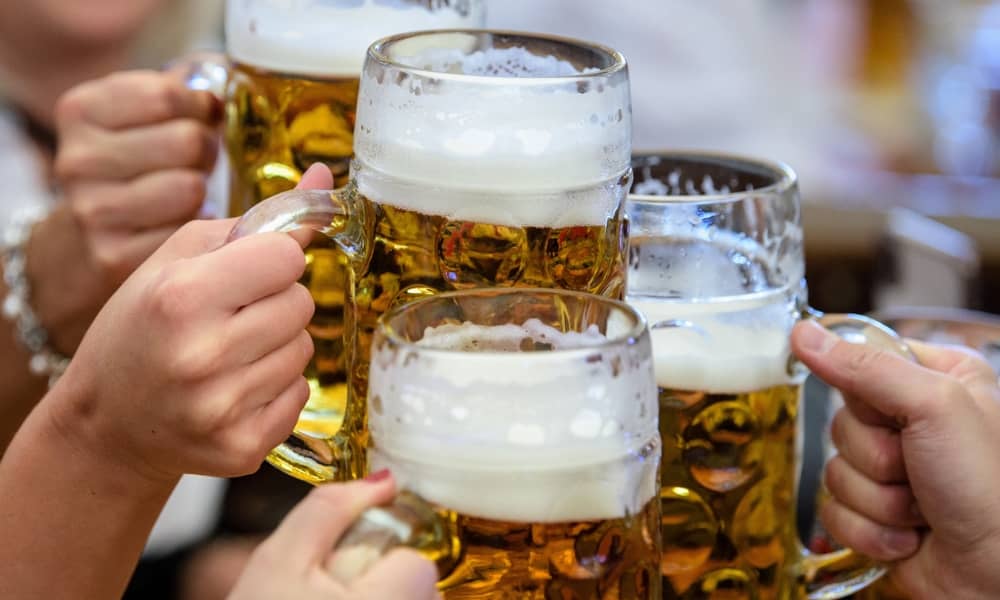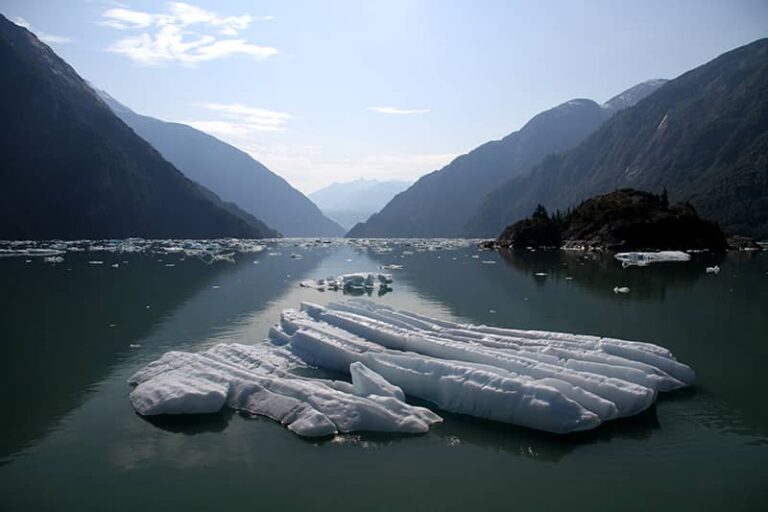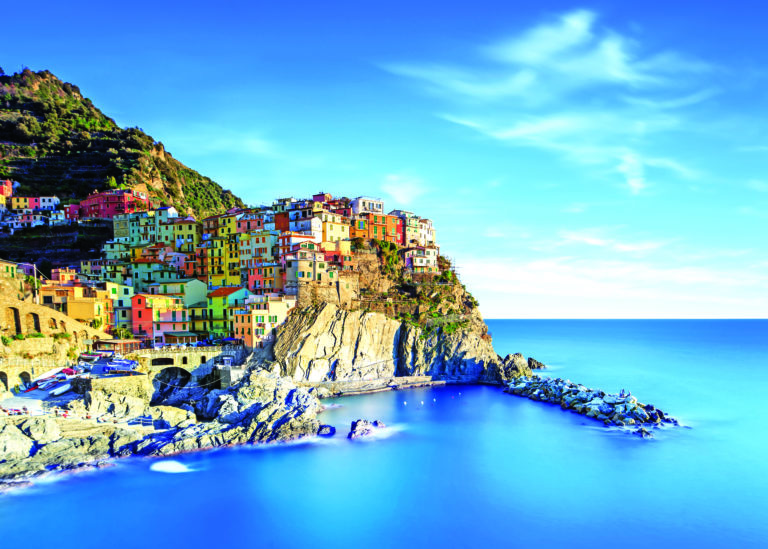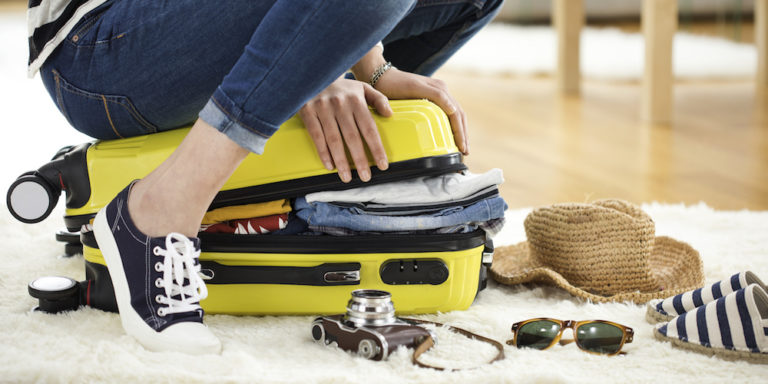It’s that time of year again when millions of visitors from all over the world descend on Munich, Germany to gulp down countless tankards of beer at Oktoberfest.
There’s no point in sugarcoating it, Oktoberfest is full-on.
This year the world’s largest beer festival kicked off on September 16 and will be serving an endless flow of thirsty crowds clad in dirndl dresses and lederhosen dancing on benches until the taps are shut again on October 3.
Organisers expect some 6 million partygoers to head to the “Wiesn” – the large open area that hosts the festival – as the Oktoberfest continues to recover from a pandemic-induced hiatus.
With a forecast for fine weather, this year looks set to be particularly busy, so here’s what you need to know before joining the masses.
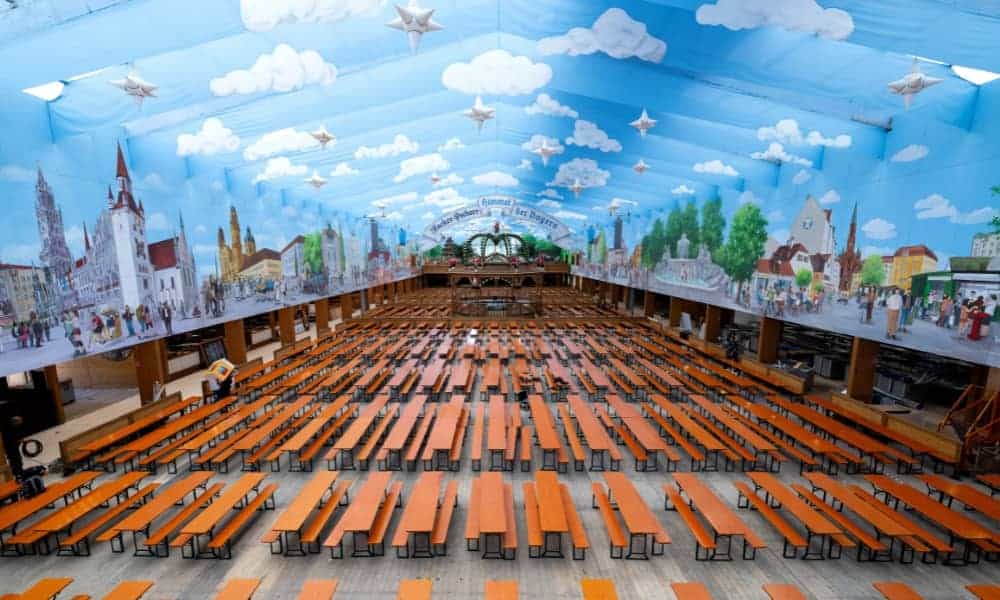
How much for a beer?
First things first: Beer at Oktoberfest is served in traditional tankards that hold 1 litre and the reveal of prices is always closely watched. This year, one tankard – called Mass in German – costs a staggering €14.18 (NZ$25.51 / AU$23.45) on average, up 6.1% from last year, in line with inflation rates in Germany.
Nationwide, the price for beer even surged by 12.2% in August compared to last year, according to the Federal Statistical Office. However, beer prices in German pubs tend to be significantly lower than at Oktoberfest.
Another thing to keep in mind: The beer served at Oktoberfest, a Bavarian lager specifically brewed for the event, has a higher alcohol content than other beers served in the region, with up to 6% compared to around 4.8%. A Mass is therefore approximately equivalent to several shots.
Whether that’s a good or a bad thing is for you to decide.
Should I bring a water bottle?
While it’s common practice in bars and restaurants all over the world to serve free tap water, in Germany that trend is only now starting to catch on.
This year’s Oktoberfest marks the first time that organizers are providing free drinking water to visitors, who can fill up their bottles at one of four dispensers set up across the Wiesn.
With thousands expected to flock to the festival every day, that could mean long waiting times but might still be preferable to paying €10.04 ( NZ$18.06 / AU$16.60) for 1 litre of bottled water at one of the festival tents.
Keep in mind that glass bottles are not allowed at Oktoberfest.
How do I get a table in one of the festival tents?
If you’re only thinking about this now, you have already missed out on reserving a spot at one of the Oktoberfest tents – which is where all the drinking and dancing on benches takes place – but luckily there are several areas with unreserved seating.
A good 25% of spots are up for grabs in the big tents, according to the festival’s website, but given the huge crowds the event draws every year you’ll need to be quick to get one of those.
The most reliable way to secure a table is to get up at the break of dawn and be the first in line when the festival grounds open at 10 am on weekdays or 9am on the weekend.
Slipping one of the waiters or waitresses some cash to get a spot isn’t a good idea, as they will immediately be fired if caught, and you might be kicked out as well.
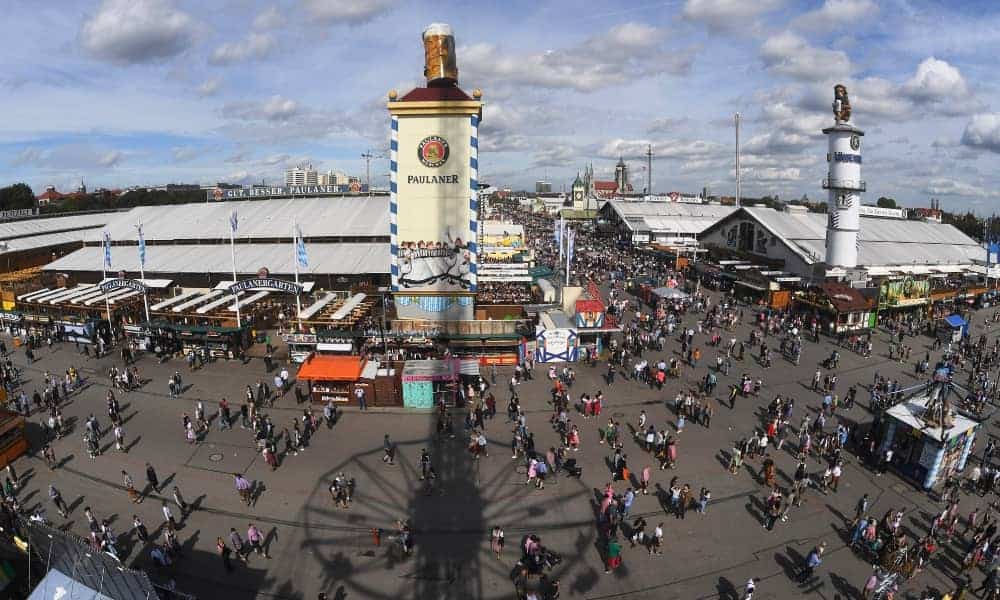
What’s the best time to go?
Things usually quiet down a bit around midday so that might be a good time to secure a table before the festival tents get crowded again with locals joining after work.
Friday and Saturday evenings tend to be busiest.
Do I need to dress up in dirndl and lederhosen?
No. There’s no official dress code at Oktoberfest and from Scots in tartan skirts to drag queens in high heels, everyone just does as they like.
However, many people, locals and foreign visitors alike, do dress up in the traditional local costumes and if you haven’t bought yours, there are plenty of stalls outside the grounds selling mass-produced dirndl and lederhosen.
For high-quality, authentic attire, however, you need to hit a shop in the city centre.
However, original Bavarian Tracht, as the traditional costumes of the southern German states’ villages are known, are handmade and therefore quite expensive. Another option is to rent an outfit from one of the many local retailers or online.
By the way, people only started wearing dirndl and lederhosen to Oktoberfest in the mid-1990s. Initially, visitors came sporting their most festive attire.
What is the dirndl code?
According to an old rule regarding the dirndl dresses, if the bow of the apron is worn on the left, that means the woman is single. Tied on the right the bow indicates she is married or in a relationship. A bow tied in the middle means the wearer is a virgin, while things are left unclear when it’s tied in the back.
Luckily, less and less people know about this rule, but sexual harassment is still a real issue at the festival. There’s security personnel in every tent so make sure to alert them if you want support.
What about sustainability?
Just like any event of its size, Oktoberfest devours a large amount of resources, not least power and water. Organizers are aiming for the beer tents to become climate neutral within the next five years, ideally by 2026.
Thus, each tent is now tracking its carbon footprint, electricity comes from renewables and the water used to clean the beer tankards is given a second lease of life as flush water.
Disposable plates and cups have been banned for decades, and while hendl, a traditional Bavarian chicken dish, is expected to remain the top selling meal, tent operators have been urged to serve at least one vegan dish, plus more vegetarian options,
- This year’s Oktoberfest runs from September 16 to October 3, a national holiday in Germany.


